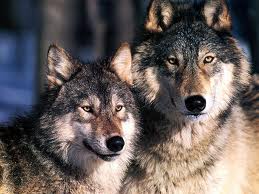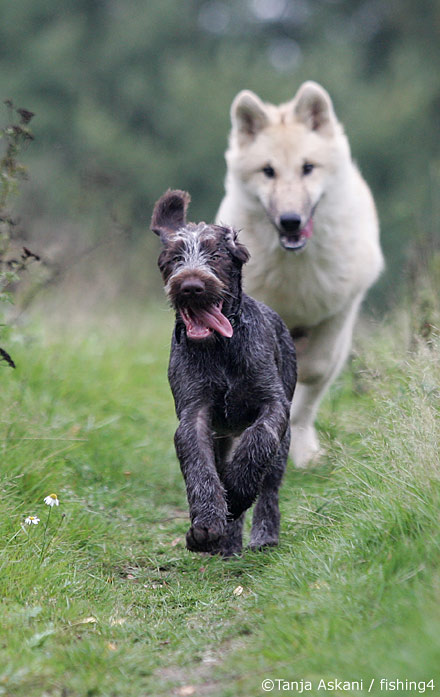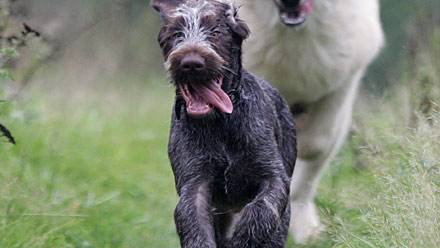Starchy diet may have transformed wolves to dogs
Source: sciencenews.org
Even the most illustrious canine breeds can probably trace their heritage to junkyard dogs. That’s the conclusion of a new study aimed at finding the genetic changes that transformed wild wolves into domesticated dogs. Dogs can digest carbohydrates better than wolves can, and gaining that ability may have been an important step in taming the animals, evolutionary geneticist Erik Axelsson of Uppsala University in Sweden and his colleagues report online January 23 in Nature. As humans settled into farming communities, wolves may have given up their meat-only diets to scavenge carbohydrate-rich food from garbage dumps. Animals that could best make use of the starchy food may gradually have morphed over generations into man’s best friend.
That’s the conclusion of a new study aimed at finding the genetic changes that transformed wild wolves into domesticated dogs. Dogs can digest carbohydrates better than wolves can, and gaining that ability may have been an important step in taming the animals, evolutionary geneticist Erik Axelsson of Uppsala University in Sweden and his colleagues report online January 23 in Nature. As humans settled into farming communities, wolves may have given up their meat-only diets to scavenge carbohydrate-rich food from garbage dumps. Animals that could best make use of the starchy food may gradually have morphed over generations into man’s best friend.No one expected genes relating to digestion to be important for dog domestication, says Elaine Ostrander, chief of the National Human Genome Research Institute’s cancer genetics branch and an authority on dog genetics. Researchers previously thought that when wolves became domestic dogs, genes controlling behavior and the immune system must have changed.
The new study focuses on genetic differences between 60 dogs representing 14 breeds and 12 wolves from around the world. Those changes, the researchers reasoned, could identify genes that were important in separating dogs from wolves.
The researchers determined the genetic makeup of groups of dogs and compared the results to those from wolves, concentrating on parts of the genetic instruction book that differ between the two species. As they had expected, the researchers uncovered differences in many genes relating to the brain. But the search also revealed lots of genes involved in starch digestion and metabolism, and in the use of fats. Dogs, the team found, have more copies than wolves do of the AMY2B gene, which produces an enzyme that breaks starch into easily digestible sugars.
Other genetic variants seem to contribute to dogs’ increased ability to convert a sugar called maltose to glucose, the sugar that cells prefer to burn for energy. Yet other genetic changes improve dogs’ ability to move glucose into their cells. Combined, the tweaks alter dogs’ metabolism so they can get more energy out of a carbohydrate-rich diet than wolves can, the researchers conclude. The scientists confirmed the effect of the genetic variants by identifying biochemical differences in starch metabolism in blood and tissue samples from dogs and wolves.
[...]
Read the full article at: sciencenews.org























